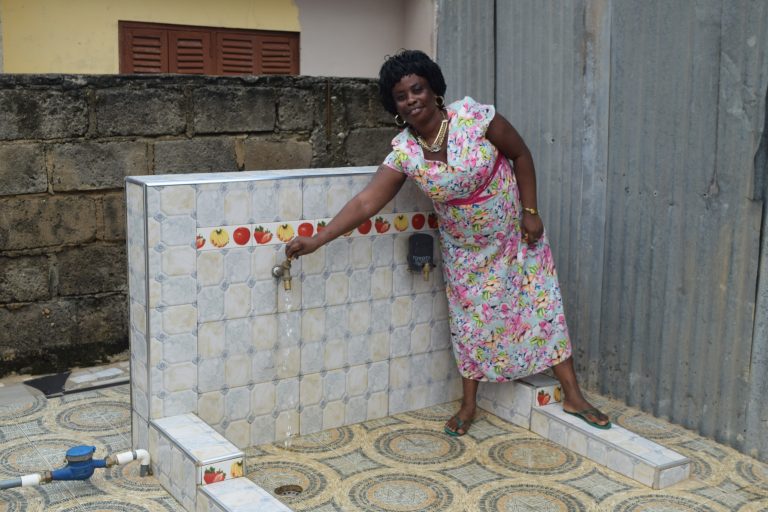A new financial product called development impact bonds has been launched to improve water, sanitation and hygiene (WASH) in underserved communities. If successful, this may be an investment boost that the sector needs in order to meet the UN’s Sustainable Development Goals (SDGs).
The context
More than 2 billion people in the world consume water that has been contaminated, meaning that one in three people do not have access to potable water. Without that access, people drink water with fecal bacteria, parasites, and land-based contaminants that enter surface drinking water sources, including wells, springs, rivers, lakes, ponds and others. This leads to an estimated 485,000 diarrheal deaths each year (UNICEF 2019).
The latest report by the WHO/UNICEF Joint Monitoring Programme for Water Supply, Sanitation and Hygiene presents the first estimates for the new UN’s SDG indicators in WASH and finds that in 2017:
- 3 billion people (38% of the global population) used safely managed drinking water services, meaning a source of drinking water accessible on premises, available when needed and free from contamination. Yet 785 million people still lacked even a basic drinking water service relying on either distant (over 30 mins roundtrip) or unimproved sources to meet their household needs.
- 4 billion people (51%) used a safely managed sanitation service, that is, a sanitation facility with excreta safely disposed of in situ or treated off-site.
- Data are available on hand-washing with water and soap for 78 countries and show that coverage of basic facilities is often less than 50 percent.
Though this number of drinking water-related deaths is staggering, it fails to represent the hundreds of millions of individuals, who suffer from serious waterborne illnesses each year due to the lack of access to a safe and reliable drinking water source. Since waterborne diseases have the greatest effect on children, the secondary effect of waterborne illness directly impacts community development indicators, such as education and livelihood generation due to missed days at school by the children and missed days at work to care for a sick child.
Making WASH investments more credible
The first Development Impact Bond (DIB) developed for WASH is known as the Cambodia Rural Sanitation DIB. This bond has been launched by International Development Enterprises (iDE), in partnership with the Stone Family Foundation and USAID, and has announced a $10 million bond in support of sanitation initiatives in Cambodia. WASH DIB is aimed at ending open defecation in 1600 villages in six provinces by 2023, and accelerating the Cambodian government’s efforts to achieve universal sanitation. Safe sanitation is critical to keeping drinking water free of contamination and preventing the spread of disease, improving overall health and reducing stunting among children.
Attempting to solve entrenched global problems with new financial mechanisms, such as DIBs, is not something new. It has been done in areas such as climate change prevention, and empowering womens’ health and livelihoods. However, the application of such a mechanism to address WASH management so as to achieve the UN’s SDG 6, clean water and sanitation for all, is a novel concept.
Developed with the support of Social Finance, which undertook the feasibility study and facilitated the design discussions among the partners, the impact bond mechanism is expected to incentivize continuous program improvement, enabling iDE to leverage data analysis and adaptive management strategies to achieve the desired outcomes.
Combining Data and Financial tools to address WASH management
Engineering for Change’s Solutions Library is a free for all data-hub, full of solutions to address WASH issues with products and services to serve the base of pyramid populations, last mile communities and communities living without any centralized water and wastewater management systems, and even off-grid communities. Solutions Library and other offerings from Engineering for Change are aimed towards achieving the SDGs for all by 2030.
Products and services combined with innovative financial mechanisms such as DIB can a long way in providing WASH services to all in need, especially children across the world. According to Kelly Ann Naylor, Associate Director of Water, Sanitation and Hygiene, UNICEF, “Closing inequality gaps in the accessibility, quality and availability of water, sanitation and hygiene should be at the heart of government funding and planning strategies. To relent on investment plans for universal coverage is to undermine decades worth of progress at the expense of coming generations.”

